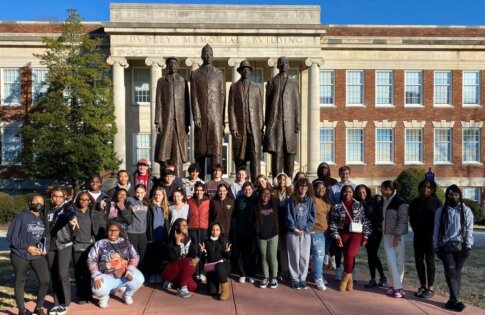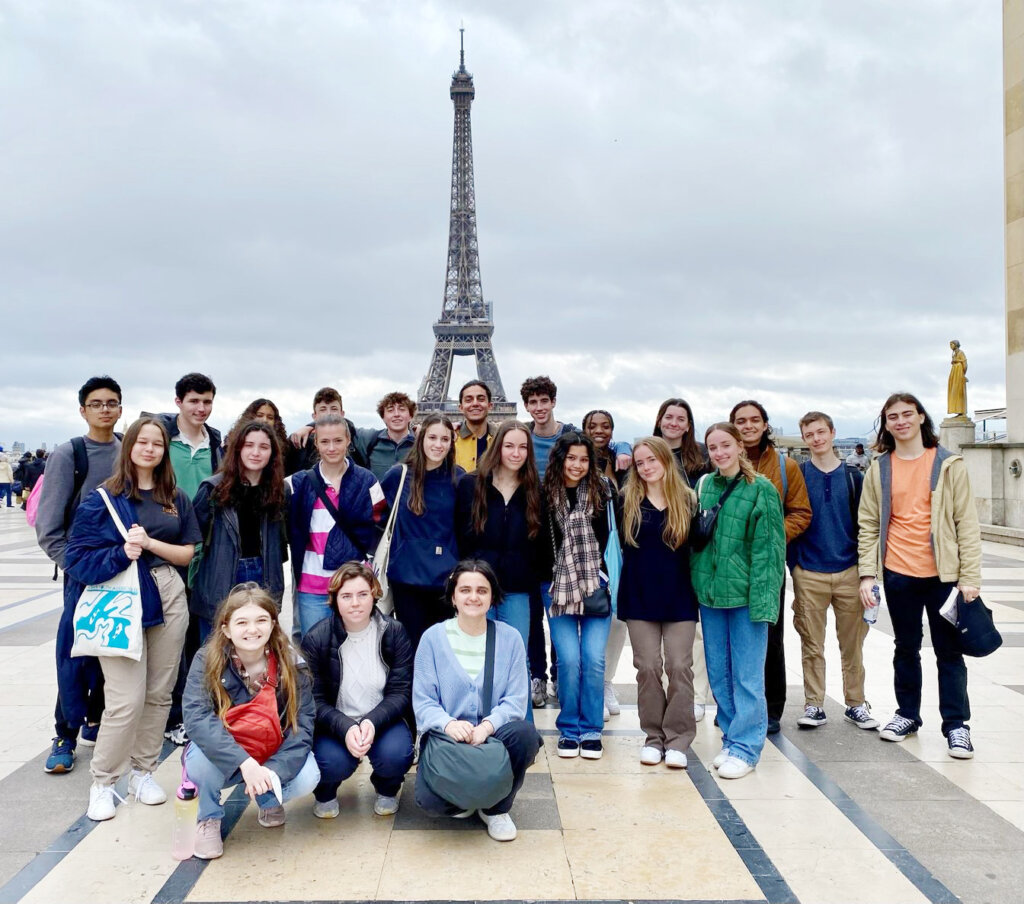Upper School History Teacher Peter Warren Published in Independent Teacher Magazine
Upper School history teacher Peter Warren begins every Twentieth Century World History class with a five-minute observance of a notable birthday, known as the “birthday quiz.” He’ll provide biographical details of a historical figure, including dates of birth and death and why the birthday boy or girl is worthy of celebration, and he’ll often show an image of the person and sometimes an example of their work. The birthday men and women come from all over the world and have each made some notable contribution to 20th century history, whether for good or evil.
In an article for Independent Teacher magazine, Peter describes how beginning each Twentieth Century World History class with a birthday quiz helps enrich his course, and encourages his students to draw connections and think critically about the time period.
In the article, Peter writes:
Each of their stories helps deepen the exploration of the 20th century’s experience. Spending a few minutes on individual biographies is a way to weave into history stories that would not otherwise warrant notice. These stories float free of the weights of coverage; they arise each day as little discoveries, opportunities to see the world through different lenses and eclectic perspectives…I choose people who have made a substantive contribution to the 20th century. I make sure that the selections represent over time as diverse a range of fields and backgrounds as possible.
History through birthdays guarantees fresh opportunities for all sorts of connections. We happened to be reading a document by the German historian and nationalist Heinrich von Treitschke in September, at the time of the birthday of H.L. Mencken. We discussed Mencken’s admiration for Friedrich Nietzsche. We considered Mencken’s quote, “Democracy is a pathetic belief in the collective wisdom of individual ignorance.” One student saw a bridge between Mencken’s and von Treitschke’s suspicion of the efficacy of democracy. This brought us to a consideration of late 19th century German nationalism in a very different context: what elements might have been considered as positives by contemporaneous Americans? And how might that have bearing on the West’s assessment of German nationalism in the early 20th century?
Read the full article here: http://www.nais.org/Magazines-Newsletters/ITMagazine/Pages/History-Through-Birthdays.aspx#sthash.VPrbB5UR.dpuf
Back to The LatestShare
Related Posts

Congratulations to Upper School Science Chair Carla Guarraia on receiving the Presidential Award for Excellence in Mathematics and Science Teaching! The Presidential Award for Excellence in Mathematics and Science Teaching...

After Thanksgiving break, a group of Park students and faculty attended the NAIS Student Diversity Leadership Conference (SDLC) and the NAIS People of Color Conference (PoCC) in St. Louis, Missouri....






